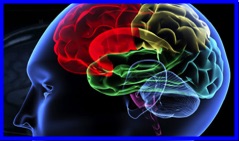Types of Services
Personality and Behavioral Assessment
Sometimes, full cognitive assessment is not critical to the referral question. In such instances, an evaluation targeting certain behaviors and personality characteristics can be most useful.


We offer many different types of evaluations for children and adults. Read about some of the possibilities here. Feel free to call the office to discuss your unique needs
These evaluations begin with a comprehensive interview. Understanding the person in context, based on history, is a
key starting point. This information is supplemented with collateral input (such as from a family member) and rounded out with personality measures to provide a more objective overview of...

Neuropsychological Evaluations
Neuropsychology is a specialty area within Clinical Psychology that focuses on brain-behavior relationships. There are many reasons for a neuropsychological evaluation. These detailed evaluations provide information about individual cognitive areas such as memory,
language, visual-spatial abilities, attention, executive functions, and more. Neuropsychological evaluations can document changes after a head injury, determine if there is evidence for dementia and ...
Educational Testing
Cognitive Assessment
Forensic and IME Evaluations

Psychological evaluations for children and young adults struggling in the academic environment can be useful by identifying the reason for those struggles and to offer
recommendations for intervention. Documenting this information is also critical in securing appropriate accommodations in the school setting. Fiano Psychological Services offers three levels of educational evaluations...
Assessment of cognitive abilities is usually the core of other evaluations we have mentioned, such as psychoeducational and neuropsychological assessments.
Cognitive or intellectual assessments provide a broad understanding of an individual's overall abilities. Intelligence is a multi-faceted concept and therefore testing involves numerous individual tasks...

An evaluation becomes forensic when legal proceedings are involved. Although the framework for a forensic evaluation is similar to the clinical evaluation, there are many important differences.
Typically, the court or the attorney is considered the “client” in such evaluations. Establishing who the client is offers
certain protections in a forensic...


